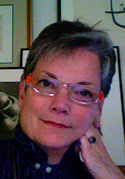 |
→ May 2007 Contents → Dispatches
|
|
|
|
EDITOR'S NOTE: 
The killing of 32 people at Virginia Tech stunned the U.S. and the world. The killer turned out to be another student at the university whose last shot was spent on himself. Jay L. Clendenin arrived the same day as the massacre amidst the general arrival of the larger press corps. The jostling for position, surrounding small grieving groups of students, disturbed the photojournalist as he himself carried out his job. Despite the throng he came back with meaningful images. Reading his dispatch I thought of what another photographer said when asked about a similar situation with difficult images: "Would you rather I didn't take them? Would you rather not know?" Reality is difficult and complex and choices must be made by each journalist.
Max Whittaker writes of his experience during Operation Achilles in Afghanistan. His vivid account and images bring the reader along on a difficult but not untypical campaign. His surreal and almost too pretty image of troops in a poppy field illuminated by a flare is one example of the war's dichotomies, that is, Afghanistan is a beautiful but deadly land. The troops, tortured by dysentery, heat and fleas, make their way on foot through the countryside. Whittaker reaches some tried and true conclusions about photographing wars: You're either too close or too far away, and picturing men firing at the enemy generally makes for boring results. Robert Capa and others knew this—you can't get both sides into the frame; that only happens in the movies. The circumstances and reactions of the individual soldier tell the story.
The music culture of Orange County, Calif., is the successful subject of John Gilhooley's work. His very selective biography is part of his dispatch and sets the stage for the current work. After college he worked as an advertising photographer. While this might have been a faster track to a good living he realized that he could not devote his life to making objects look appealing. This must have been a difficult decision because choosing to work in a cultural milieu held out no fast track to earnings. His images show, however, that he chose well.
Ali Akbar Shirjian, a photographer working in Iran, returns with a second account of the Shia Ashura ceremonies commemorating the death of Imam Hussein. In April of last year he photographed the men of Khorramabad caked with mud and wrote of the ritual's significance for the participants. For May he presents a woman's ritual of lighting 40 candles at the doorsteps of houses. He again tells the people what he will do with these images and lets them speak.
The final dispatch is by Michel de Groot who returns to Chad to track the spreading violence originating in Sudan. The crisis in Sudan has at least two causes. Most directly it originates with the government-backed African-Arab militias who attack black African tribes. It is complicated by the presence of radical Islamists who are in a power struggle with the government. This genocide has produced thousands of internally displaced persons (IDP) who have fled into Chad. And now Chadian Arab militias attack Chadian villages in as exact replica of Sudan's terror. This trip by De Groot takes him to the newer refugee camp where he encounters the whole process of taking in the IDF population. Marianne Fulton |
|
Go to the Dispatches archiveBack to the Contents Page |
|




